Everything you NEED to know about Retinol- Interview with Jan Marini
How is this the first time I’m talking about retinol on here?! Retinol is the gold standard ingredient for anti-aging and has so many other amazing benefits. I am especially excited about this post because I interviewed the expert, Jan Marini, to learn about retinol and some of her products that contain this powerhouse ingredient. As I always say, I’m Jan’s #1 fan, she is the skincare queen and has such a deep understanding of skincare ingredients. In this post, we discuss everything from what retinol is, how it works, who it can help, and dive into some of the most common myths surrounding this amazing ingredient.
What is Retinol?
Retinol is in the Vitamin A family, which is one of the body’s key nutrients for boosting cell turnover. Retinol in skincare is a game-changer because it does SO MUCH. It promotes skin renewal, brightens skin tone, reduces acne, improves the appearance of discoloration, and boosts collagen production. It also functions as an antioxidant to help address free radical damage, which leads to visible signs of aging.
Retinol is one of the primary skincare ingredients that has proven to actually boost collagen and plump the skin. Jan says everyone on the face of the earth can benefit from using it in their routine and says the sooner you start using it the better.
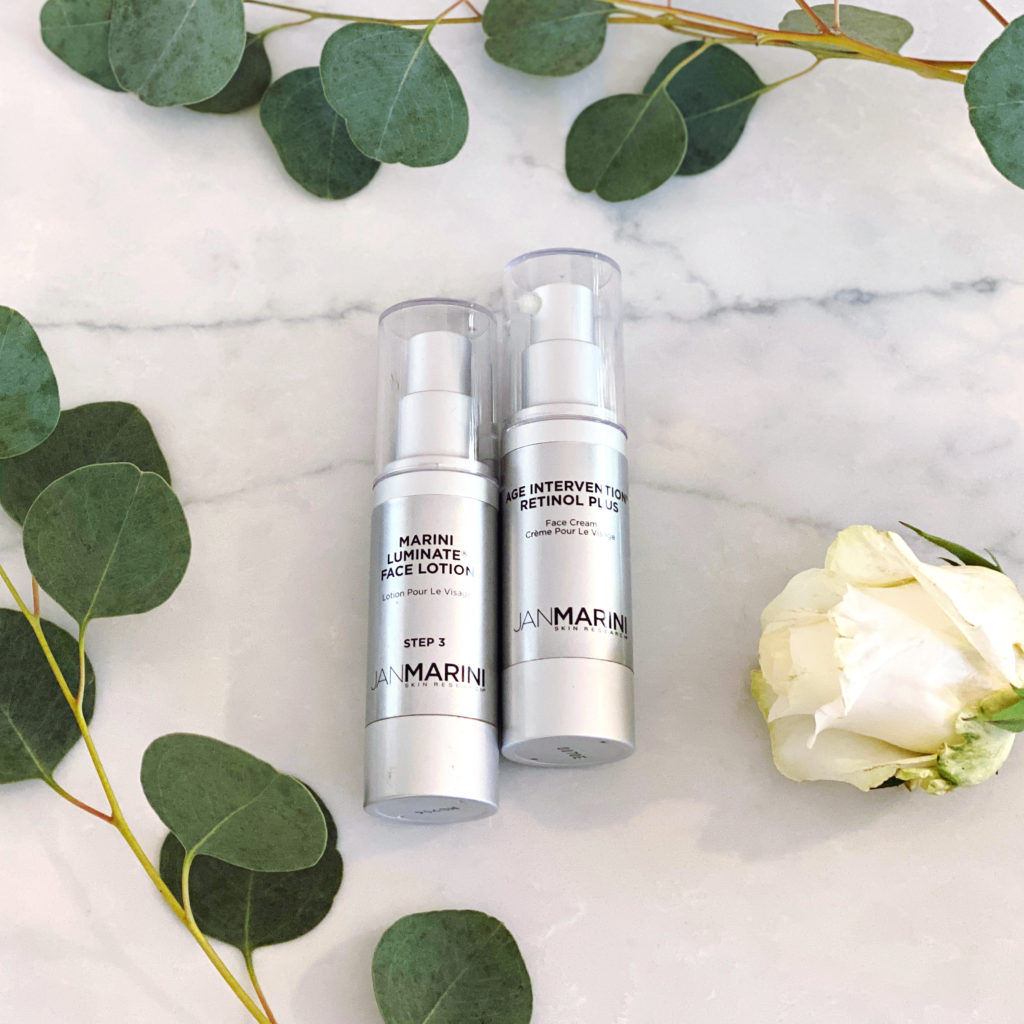
How does Retinol Work?
Retinol is a cell-communicating ingredient and it can actually change the instructions coming from your DNA. Our genes are made up of DNA and some of our genes are “expressive” genes, meaning they send out instructions on how our body should repair, rebuild, maintain, etc., As we age, and through cumulative sun exposure, these instructions become compromised. This is apparent when we start to look older, feel older, and heal slower. When skin is affected by environmental damage or it is showing signs of aging, uneven skin tone, enlarged pores, and has become more prone to breakouts, retinol can provide assistance in helping your skin to look more like it did before the damage started.
Retinol can improve the appearance of skin tone and radiance, boost collagen production, reverse the appearance of damage, and lessen the appearance of pigmentation. On top of that, retinol has been shown to increase the production of hyaluronic acid in your skin that keeps it plump and moist. It is also great for clearing acne!
What’s the difference between Tretinoin (Retin A) and Retinol?
In short, nothing. We all have a specific enzyme in our skin and when Retinol is applied, this enzyme converts Retinol into Retinoic Acid, or Tretinoin, the active that is in prescription retinoids like Retin A.
I was prescribed a prescription retinoid (Retin A) for acne when I was in high school and it was an experience… It was too intense for my skin and it made my skin red, itchy, and inflamed for weeks… AND I got a lip & brow wax and literally ripped the skin off my face. *If you are on any sort of retinoid you must take a break from it for 4-5 before your wax appointments!
It’s very common for your skin to have side effects such as dryness, redness, burning, peeling, and flaking, while using prescription retinoids vs. retinol because many of the retinols you can purchase over the counter have TINY amounts of retinol in them. The reason they don’t have a high percentage of retinol is that it can actually be more irritating than prescription retinoids.
This isn’t the case with Jan’s retinol products. Jan has been able to imitate the percentage of Tretinoin in her retinol products without the irritation (this is HUGE considering you need way more retinol to be equal to tretinoin). She always has her products tested extensively and during her retinol tests, 78% of the participants had zero side effects! The other 22% had minimal redness or irritation that subsided after the “break in” period.
Another difference between the two is that you don’t need a prescription for Retinol but you do for Tretinoin. Oftentimes, dermatologists prescribe Tretinoin to help with acne, fine lines, wrinkles, and fade pigmentation. Retinol does all of this as well!
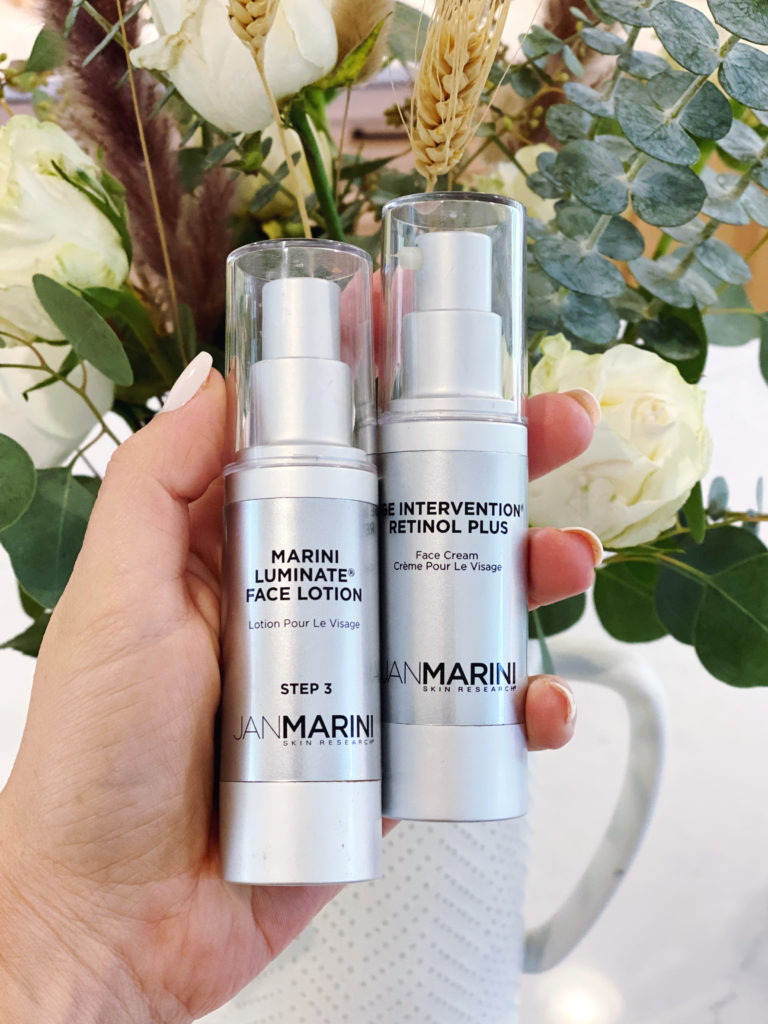
Common questions about retinol:
Do retinols thin your skin?
Kind of, but in a good way.
Our skin is comprised of two main layers: the epidermis and the dermis. Retinol technically does “thin” the outer, dead layer of the skin, the stratum corneum, but that’s a good thing. As we age, this layer can look dull and coarse, and actually thickens, so the “thinner” and more compact this layer is, the better we look. Also, when our stratum corneum is thin and compact, topical agents are more effective. Since your stratum corneum is already dead and you want it as refined, flawless, glowing, and reflective as possible. So, the thinner the better!
On the other hand, we want a thick, robust dermis. When we reach our 20’s, the collagen in our dermis begins to decrease, each year, by 1% or more. Cumulative sun exposure, lifestyle, etc., can increase the 1% collagen loss. Retinols have been shown to thicken the dermis by twice as much! By thickening the dermis, retinol helps you look plump and fresh.
Does retinol make you more sensitive to the sun and more prone to burning?
Jan says that sun sensitivity is a chemical reaction with UV light. There are different types of drugs that can cause it but retinoids aren’t one of them. In fact, studies show that even if you started using a retinoid, spent time in the sun without sun protection, and got burned, your skin will still heal better and have less damage than if you weren’t using retinoid at all! Retinoids showed to help the skin recover much quicker and to sustain less long-term damage.
Jan has a client who is a plastic surgeon in Hawaii- He tells his patients, many of whom are pro surfers and in the sun all day, to wear their retinol day and night to assist in preventing and reversing the appearance of damage. Also, even with the best SPF, you’re still absorbing UV radiation into your DNA. Retinol has the potential to assist in lessening photoaging before it starts!
Do Retinols exfoliate your skin?
Not exactly, but they do resurface your skin- and yes there is a difference. Jan is very anti “exfoliating” with scrubs or abrasives. She says that scrubs and manual exfoliation methods cause more harm than good. They can create micro-tears in your skin and lead to inflammation and other issues. They also don’t provide your skin with any benefits other than sloughing off the stratum corneum, which will come back and can thicken with continued physical exfoliation.
You want to resurface, not scrub. Retinol and acids like AHAs and BHAs change how your stratum corneum functions. As we age the dead skin layers get thicker and don’t turn over as quickly so our skin looks coarser and less refined. Retinol thins and compacts this dead layer so it functions like younger, less damaged skin. Retinoids do not have the ability to clear the dead skin cells on the surface of your skin so combining retinol with acids is ideal. I highly recommend Jan’s Bioclear Face Lotion serum- it’s a must-have in my routine! It has the acids we need to resurface and slough off dead skin cells by dissolving and dislodging the glue-like substance between cells in the follicle and on the surface. This will help your skin look clear and glowy.
Where it gets confusing is because retinoids can cause flaking and peeling people assume that means it is also exfoliating their skin. Flaking skin is not exfoliated skin. AHAs and BHAs help our skin do what it should be doing naturally, and naturally, you don’t see your healthy skin cells flake. Instead, you just see a smooth, renewed skin surface and a healthy glow.
Why is Jan’s Retinol unique?
Because the majority of people using it do not have any negative reactions while acclimating (this is HUGE)! Jan really focuses on how her Retinol is made. For retinol to be effective it needs to be manufactured in a pitch-black room that is then lit with a specific yellow light. Any other light in the manufacturing process breaks down the Retinol and makes it substantially less effective. This is an expensive and very important step that many other retinoid manufacturers on the market likely don’t do. Also, packaging matters- it can’t let oxygen or light in otherwise it degrades the retinol.
Jan’s retinol formulation also includes peptides that can assist in making skin look younger, smoother, and healthier. They also have many other protective and soothing ingredients that help reduce inflammation and potential irritation associated with retinoid usage.
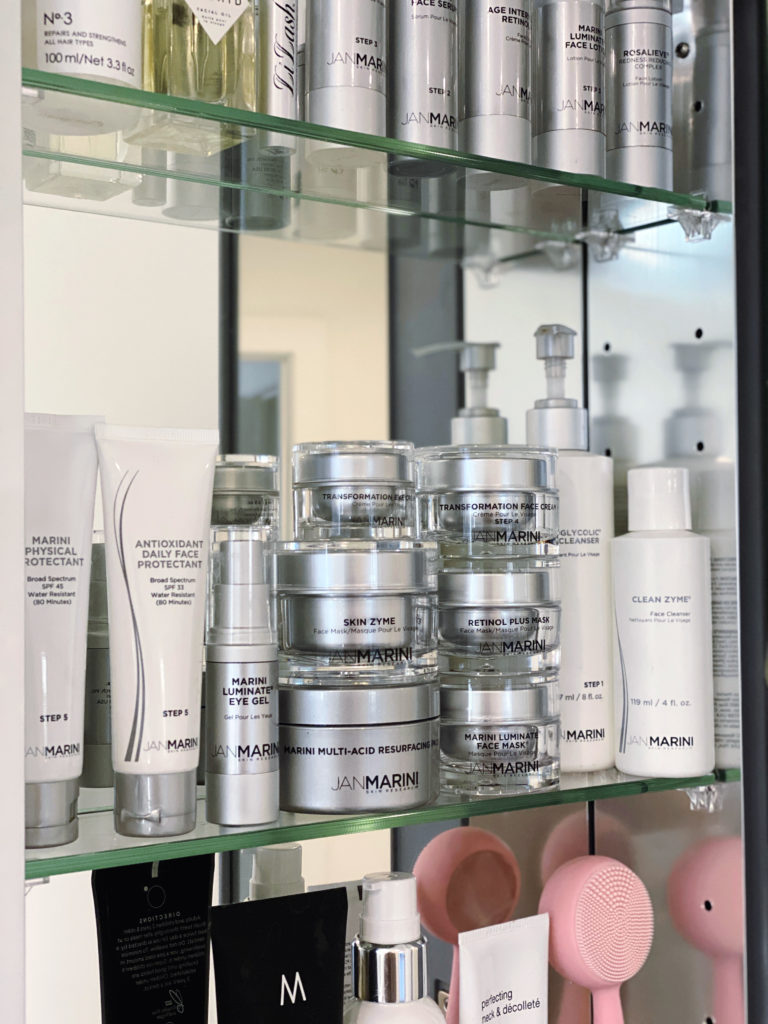
Jan has many products that contain retinol here are a few of my favorites:
I have a permanent discount code if you purchase any product from SkinStore. Use Lauren10 at checkout for 10% off.
Age Intervention Retinol Plus-
This is the one I’ve been testing over the past few months- it is a lotion consistency more than a serum and it absorbs nicely. I apply it at night and follow it with my moisturizer.
Age Intervention Retinol Plus MD (sold at doctor’s offices) – This has a higher percentage of retinol but all the other ingredients are the same as in the Age Intervention Retinol Plus.
Marini Luminate Face Lotion
This is amazing for pigmentation and works on melasma! Luminate lightens the appearance of your pigmentation in as little as one week by addressing a number of factors that determine how pigment is “thrown off” into the skin. Retinol is the most potent thing you can use for addressing factors that cause the appearance of discoloration over time. A lot of what happens with discoloration has to do with sun exposure and damage that was programmed into your skin years ago. Here is my blog post all about it!
Marini Luminate Face Lotion MD (sold at doctor’s offices) – this has a higher percentage of retinol but all the other ingredients are the same as Marini Luminate Face Lotion.
Age Intervention Duality-
This product is a must-have if you struggle with acne! It has a unique, non-drying micronized benzoyl peroxide, peptides, and all-trans-retinol. Here is my blog post all about it!
Marini Luminate Eye Gel-
I love this eye gel, it’s nice and lightweight and yes you can and should put retinol near your eyes! It contains ingredients that help reduce the appearance of dark under-eye circles and puffiness. It also brightens the under-eye area and really makes this area look much more contoured and smooth.
Retinol Plus Mask –
This mask has 1% retinol and helps accelerate cell turnover to increase firmness, diminish the appearance of fine lines, and address the appearance of acne. Shea butter hydrates and promotes elasticity while an antioxidant complex of green tea, vitamin E, and linoleic acid helps to improve age-related damage for a visibly brighter and more toned appearance.
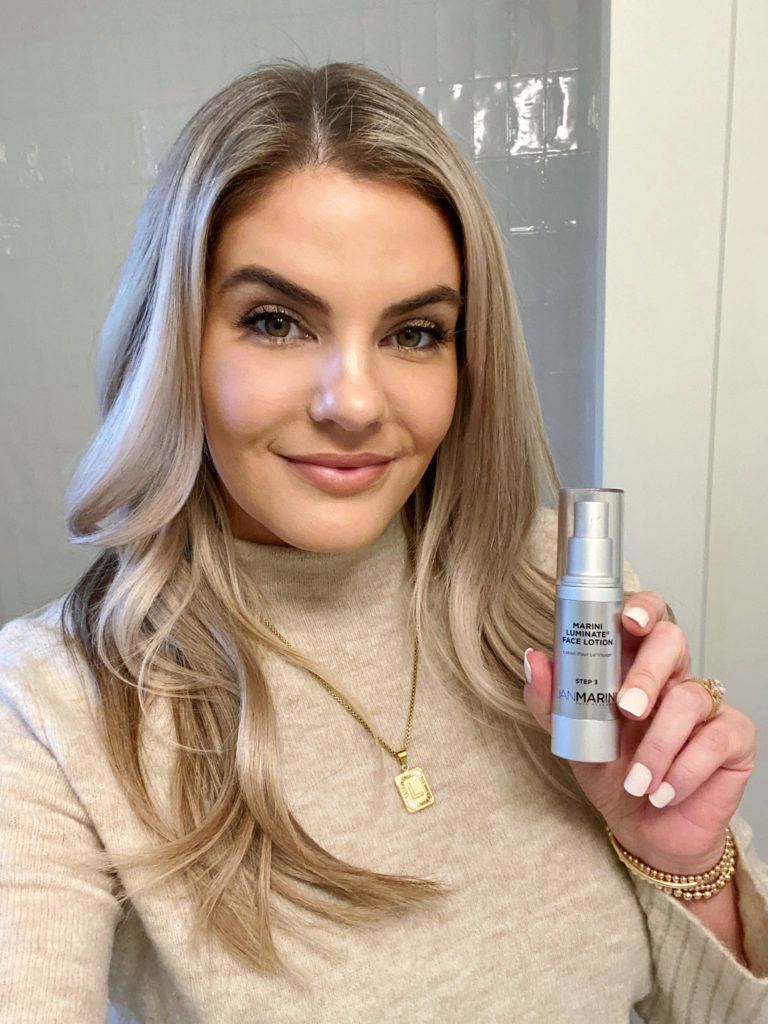
How to use Retinol
You can apply it to your face, neck, chest, hands, and anywhere you want to see results!
Jan says you can try to use retinol daily and see how your skin does, then if it becomes irritated you can cut back to every other day. Jan is also a badass and much braver than me so I started using her Age Intervention Retinol Plus slowly- every two nights, then I bumped it up to every other night, and after two weeks I used it every night. Now I’m back to every other because my skin did become a little itchy but it quickly subsided when I reduced my usage.
If you are very sensitive you can apply your retinol on top of a moisturizer and see how your skin does. You can also start very slow- like once a week- and build up from there.
While it’s unlikely with Jan’s retinol, retinol does have a history of causing redness, irritation, purging, and flaking… Don’t give up! It may take one to two weeks for your skin to totally acclimate and it’s so worth it!
You can also incorporate retinol into your regular routine without having to take away other products. There are some big misconceptions about contradicting ingredients like Vitamin C and acids and Jan quickly debunked them. Each ingredient has its own benefits and using a combination will just help you reach more of your skin goals.
Another common application myth is that if you apply your retinol to wet skin it will absorb deeper and cause irritation. This is not true. Jan recommends applying to towel-dried skin or after you’ve applied your other products. There’s also no need to wait for them to dry in between each one.
When should you use retinoids in your routine?
Wash your face
Apply your serums
Apply retinol
Finish with moisturizer
Apply SPF if you use it during the day.
When will you see results?
With Retinol and Tretinoin, you may see improvements in your skin in just a few days- this really will depend on your skin. You will likely notice a difference in pore size and skin texture pretty quickly but results are also progressive- the longer you use it, the better your skin will become.
Can you become immune to retinol?
I’ve seen a lot of conflicting articles about this- some people say that whether you use Tretinoin or retinol you will need to continue to increase the percentage to continue seeing results. Jan says this isn’t the case. Of course, you’ll see the most extraordinary improvements the first year but you will also continue to see progress over time. It’s not something you’ll look in the mirror and notice right away, but if you have damage programmed into your skin, retinol will continue to work its magic year after year.
Do not stop or give up on your retinol, even if you think you’ve plateaued or become immune. In fact, Jan says “it should be against the law to take a break from retinoids”. Haha, she’s the best!
She did say that you can use more than one retinol product a day, especially if you’re using a few of her retinol products in your routine like Duality to treat acne and Luminate to treat pigmentation. They both are used in the PM and all of her products are layered.
Can a Vitamin A supplement replace topical retinol?
No. The oral version of vitamin A is Accutane, a very potent dermatologist prescribed treatment for severe cystic acne. I took Accutane when I was 21 and it worked very well for me-Jan is a two-time Accutane failure but has seen amazing results from using her skincare line-she says she NEVER breaks out anymore. There is no cure for acne, but you can manage it and your skin can be completely clear. Taking a Vitamin A supplement won’t clear your acne and taking too much may actually affect your liver, so it’s best to stick to the topical version.
Have you ever tried a retinol or tretinoin product?! Please let me know your experiences below in the comments! Thanks for reading!
xx,
Lauren
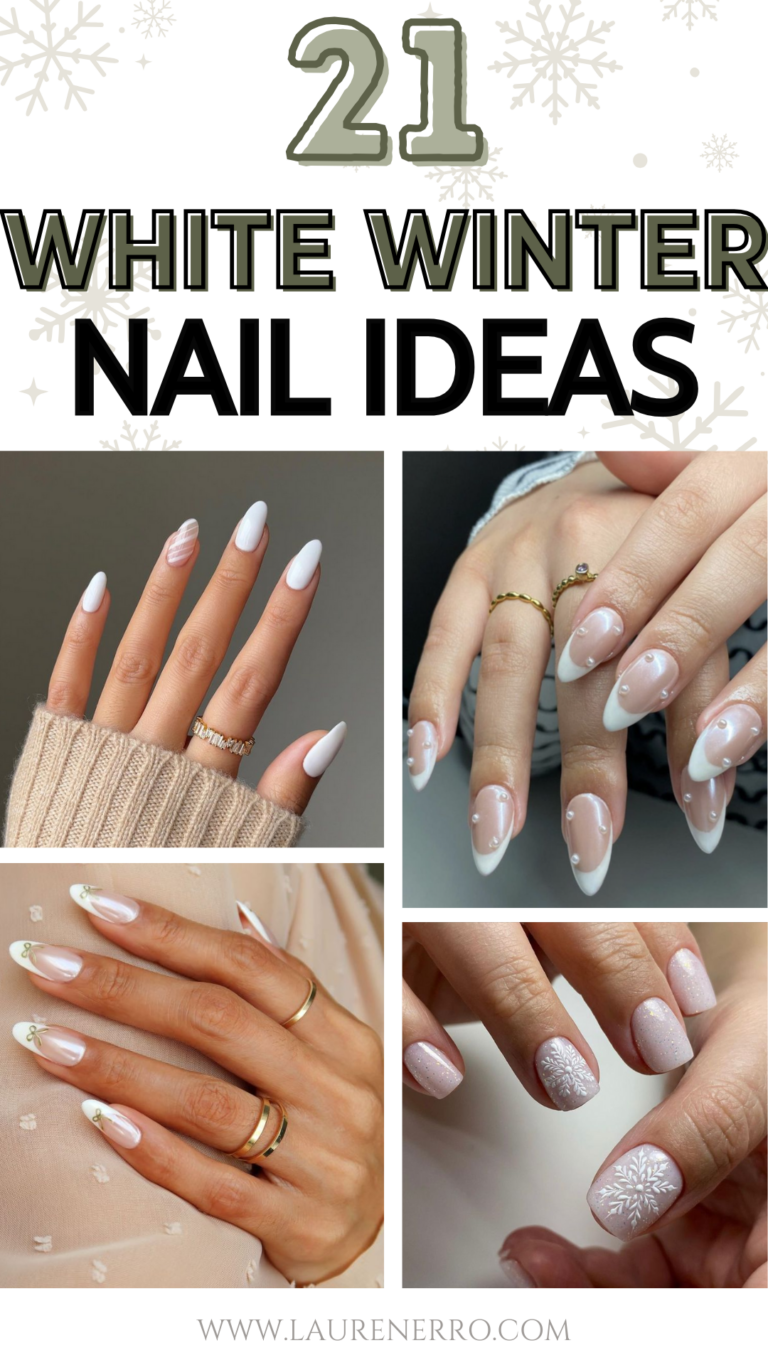
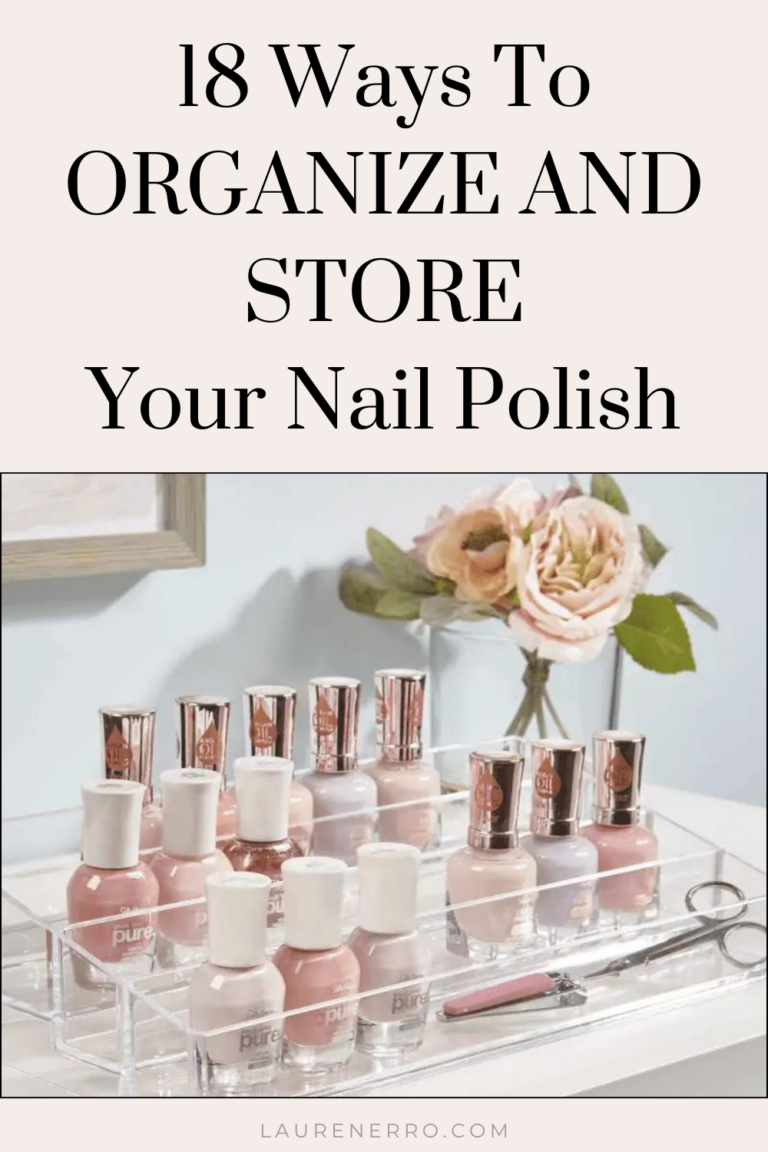
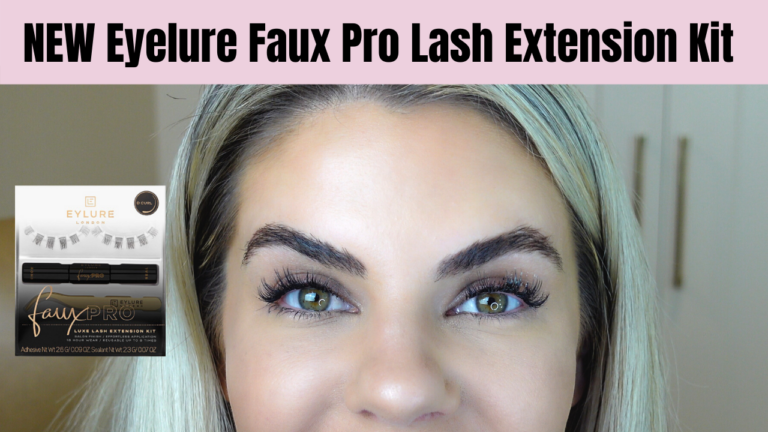
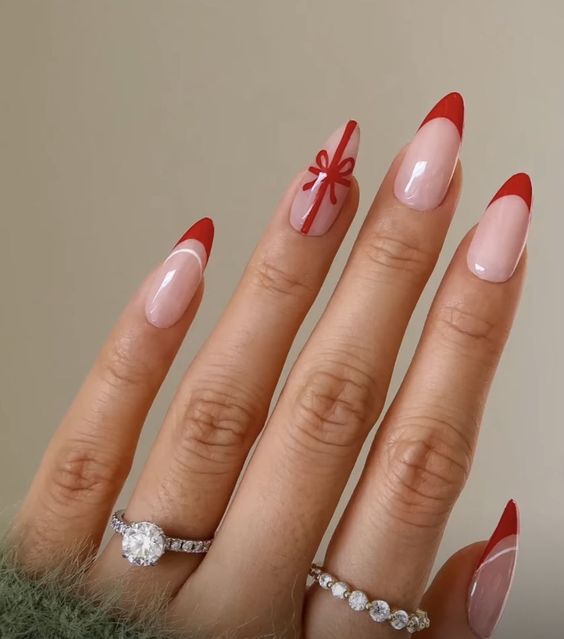

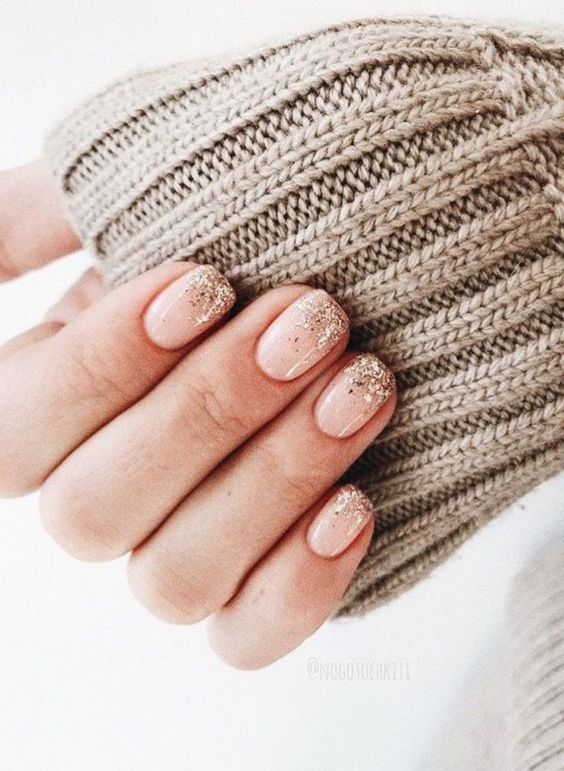
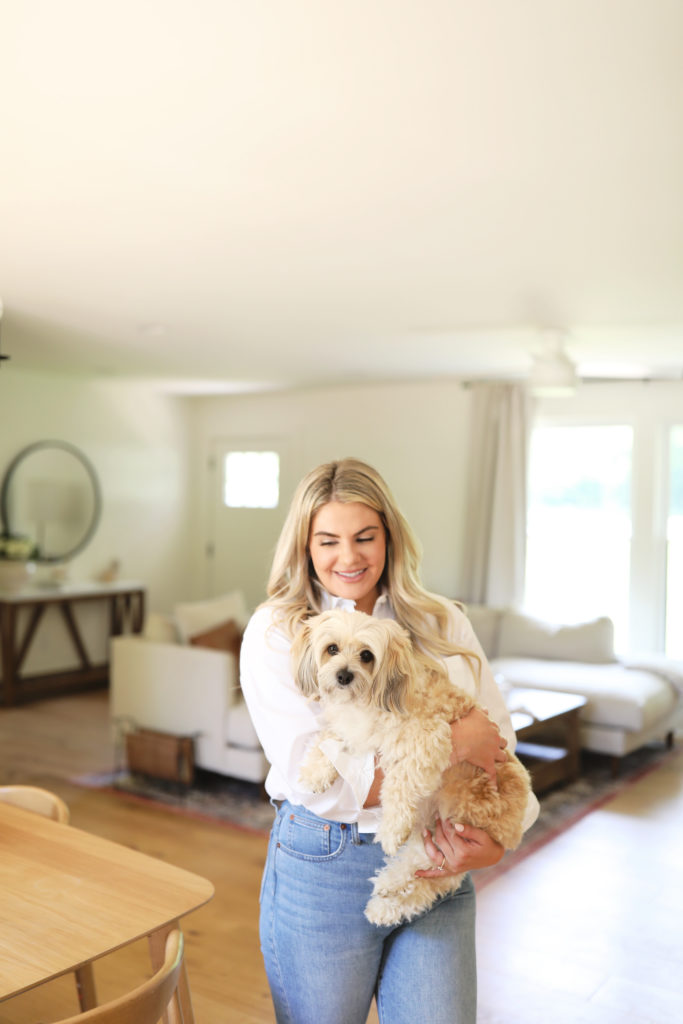
Can I use the Duality and the Age Intervention Retinol at the same time?
Hey Lisa! You don’t neede to. Duality has Retinol in it 🙂
Really Informative Blog. I saved your link